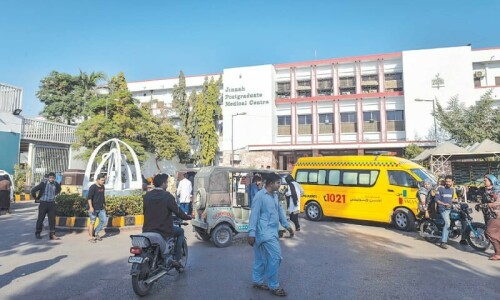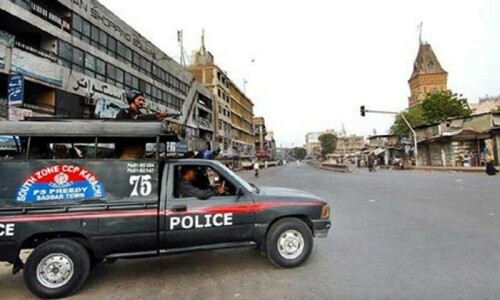KARACHI: Highlighting the importance of disaster education and training, speakers at a workshop held on Thursday said journalists’ responsibility for reporting facts today was more than ever as the social media often spread misleading information.
The national training workshop titled ‘Building Capacity of Health Journalists on Reporting Disasters Triggered by Natural Hazards and Human Activities’ was organised at the International Centre for Chemical and Biological Sciences (ICCBS), Karachi University (KU).
The programme was jointly organised by ICCBS, Pakistan Academy of Sciences (PAS), Avoidable Deaths Network (ADN), UK, and Sindh Innovation Research Educational Network (SIREN).
During the workshop, speakers described health journalism as a highly technical branch of mass communication that required not only writing skills, but also fundamental understanding of health issues and their socio-economic impact.
Prof Nibedita S. Ray Bennett, Associate Professor in Risk Management, University of Leicester, UK, said disaster deaths were very much avoidable through preventative measures.
The steps, she pointed out, included raising awareness about potential hazards, installing early warning systems and educating the public about how to prepare for different types of hazards.
She also talked about the worldwide losses being attributed to extreme weather events and said natural calamities triggered by climate change had led to more than 410,000 deaths
Dr Hideyuki Shiroshita, the founding President of ADN, highlighted the importance of disaster education and training.
Earlier, during the inaugural ceremony, provincial parliamentary health secretary Qasim Siraj Soomro regretted how the social media was spreading misleading information, creating fear and uncertainty in society.
“There is no doubt that the unprecedented rains, floods and their aftermath caused colossal damage to the province and its people. But, the provincial government has tried its best to provide maximum relief to the people,” he said, while underscoring the need for journalists’ training on reporting disasters.
Fake information, he emphasised, needed to be replaced with research-based news stories by qualified journalists.
Prof Mohammad Wasay representing PAS underlined the importance of a positive collaboration between the academia and the media, while calling for applications that could help filter out fake news.
The speakers included Dr Aditya Ghosh, Dr Nimra Iqbal, Julian Coetzee, Dr Humaira Zafar, Prof M. Iqbal Choudhary and journalist Waqar Bhatti.
Published in Dawn, January 20th, 2023













































Dear visitor, the comments section is undergoing an overhaul and will return soon.